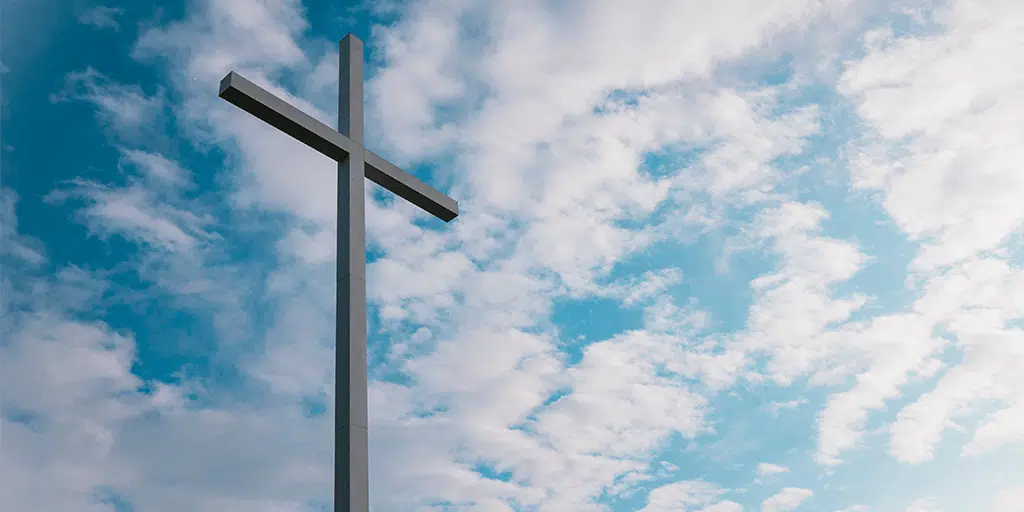Our Daily Bread

“Give us this day our daily bread.” The first thing we naturally think of is God’s provision of the daily manna for His people in the wilderness. No doubt you remember the story in Exodus 16. God told Moses, “I will rain down bread from heaven for you. The people are to go out each day and gather enough for that day” (v. 4). A couple of important notes here: first, God provided it; second, it was provided one day at a time.
But then there’s the other obvious connection we can make in this context, and that is Jesus’ claim to be “the bread of life” (John 6:35), and “the bread which comes down from heaven” (John 6:50). Two important points here: God provided it (Him); second, it (He) is essential for spiritual life, just as food is essential for physical life.
Jesus’ disciples may well have thought of one or both of those concepts when Jesus said those words, but more likely their minds were occupied by more physical concerns: “What am I going to eat? What am I going to drink? What am I going to wear?” (see Matt. 6:25-34)
Dr. Spiros Zodhiates suggests three important things we should learn from this petition: First, live one day at a time; second, cultivate simplicity; and third, don’t pray selfishly.[1]
Our Daily Bread: One day at a time
This petition mentions only today’s bread, which can be understood to include all the “necessities” of daily living—food, shelter, clothing, as suggested in Matthew 6:25ff. And yes, you will need the same thing tomorrow as well, But, as E.M. Bounds says, “No amount of praying, done today, will suffice for tomorrow’s praying. On the other hand, no praying for tomorrow is of any great value to us today. Today’s manna is what we need; tomorrow God will see that our needs are supplied. This is the faith which God seeks to inspire. So leave tomorrow, with its cares, its needs, its troubles, in God’s hands.”[2]
There’s another caveat here that Wesley Hill mentions. Don’t be presumptuous: “Some Christians, says Maurice, ‘are apt to mock God when they speak these solemn words,… apt to take food and every other blessing as if it were their right of which no power in heaven or earth except by sheer injustice can deprive them.’”[3] As we remember that “every good and perfect gift is from above, coming down from the Father” (James 1:17), including the very food we eat, we will remember to thank Him and be good stewards of what we have been given.
Cultivate simplicity
Timothy Keller says, “Augustine reminds us that ‘daily bread’ is a metaphor for necessities rather than luxuries.”[4] Spiros Zodhiates adds, “Socrates said, ‘How many things there are that I do not need.’ You will be a satisfied person when you begin to think the same way. He who covets much, wants much. The truth of the matter is if you think of all the things you want or don’t have, you can never have enough to satisfy you. But if you think instead of how many things there are that you don’t need, you will be a very thankful person. For you will realize how much more God has given you than you deserved or actually needed.”[5]
The same thought is echoed in Proverbs 30:8-9, where we read, “give me neither poverty nor riches, but give me only my daily bread. Otherwise, I may have too much and disown you and say, ‘Who is the Lord?’ Or I may become poor and steal, and so dishonor the name of my God.”
But there’s a catch of sorts here. Warren Wiersbe explains: “The Father knows our needs better than we do, but he waits for us to ask. True prayer is an act of faith, and God honors faith. ‘If you believe,’ said Jesus, ‘you will receive whatever you ask for in prayer’ (Matt. 21:22). Charles Spurgeon was correct when he said, ‘Whether we like it or not, asking is the rule of the kingdom.’ James agreed with him: ‘You do not have because you do not ask God’” (James 4:2).[6]
So, ask of God, who is eager to give to His children!
Don’t pray selfishly
We see again here the “family” aspect of this prayer: give us this day our daily bread—not give me mine. When we petition the Father for daily bread—for the most basic necessities of life—we are not only asking for ourselves, but also for our brothers and sisters all around the world. We are asking for those refugees in camps where they may get only a tarp and one meal a day—if they’re lucky. We’re asking for people who have fled or been forced from their homes with nothing but the clothes on their back. We’re asking even for the homeless people in our own downtown.
Praying for God to meet their needs as well compels us to recognize that we can and should be the means God uses to meet some of those needs. Now, obviously we need to be wise here, and make sure we are giving for a genuine need, and not supporting someone’s unwillingness to help themselves. However, as Paul Meier tells us, “You and I are our brothers and sisters keepers. If I have been given the gift of being able to work, then I am the answer to my disadvantaged neighbor’s prayer when he or she prays this petition of the Lord’s Prayer.”[7]
Acts describes what this “pay it forward” attitude looked like in the early church, “All the believers were together and had everything in common. They sold property and possessions to give to everyone who had need” (Acts 2:44-45). Given how God has blessed us, can we do any less?
Go Deeper
- Pandemics, Plagues, and Natural Disasters – 2 DVDs, 5 Books
- What Did Christians Believe Within the First 24 Months of the Resurrection?
[1] Spiros Zodhiates, The Lord’s Prayer (Chattanooga, TN: AMG Publishers, 1980), p. 180.
[2] E.M. Bounds, The Complete Works of E.M. Bounds on Prayer (Baker Books, 1990), p. 17
[3] Wesley Hill, The Lord’s Prayer: A Guide to Praying to Our Father (Lexham Press, 2019), p. 36, quoting F.D. Maurice, The Lord’s Prayer: Nine Sermons Preached in the Chapel of Lincoln’s Inn, fourth edition (London: Macmillan, 1861), 59.
[4] Timothy Keller, Prayer (Penguin Books, 2014), p. 114.
[5] Zodhiates, p. 180.
[6] Warren W. Wiersbe, On Earth as It Is in Heaven (Baker Books, 2010), p. 93, quoting Tony Castle, ed., The New Book of Christian Quotations (New York: Crossroads, 1984), p. 191
[7] Paul W. Meier, In Living Color: The Lord’s Prayer (Malcolm Creek Publishing, 2012), p. 50.




